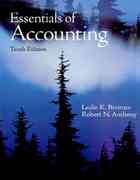Question
Non-labour Income in Life-Cycle Models: In class we talked about the effect of win- ning the lottery on labour supply in a static model. Now,
Non-labour Income in Life-Cycle Models: In class we talked about the effect of win- ning the lottery on labour supply in a static model. Now, let's think about how the effect of winning the "lottery" will depend on the age of the individual in a life-cycle model. Specifically, suppose that an individual lives for two periods and her utility in each period is given by u(ct, lt) = 1/4 ln(ct) + 3/4 ln(lt) [l=leisure, c=consumption]. The individual (as per usual) has 16 hours of time to devote to leisure or work in each period. The individual gets a wage of $10 in period 1 and a wage of $15 in period 2. The interest rate in this economy is 10%. There are no borrowing constraints and there is no non-labour income.
(a): Find the hours worked in each period.
(b): Suppose that the individual gets a non-labour income of $100 from the lottery in period 2 that was completely unanticipated in period 1 (i.e., individual has already worked h1 and saved s according to what you found in part (a)). Find the individual's labour supply in period 2.
(c): Suppose that the individual now gets a non-labour income of $100 from the lottery at the start of period 1. Find the individual's labour supply in period 1.
(d): From your answers in part (b) and (c), describe in one sentence how the impact of winning the lottery in period t on labour supply in period t varies with age according to this neoclassical model. Give a one sentence reason for your answer.
Step by Step Solution
There are 3 Steps involved in it
Step: 1

Get Instant Access to Expert-Tailored Solutions
See step-by-step solutions with expert insights and AI powered tools for academic success
Step: 2

Step: 3

Ace Your Homework with AI
Get the answers you need in no time with our AI-driven, step-by-step assistance
Get Started


